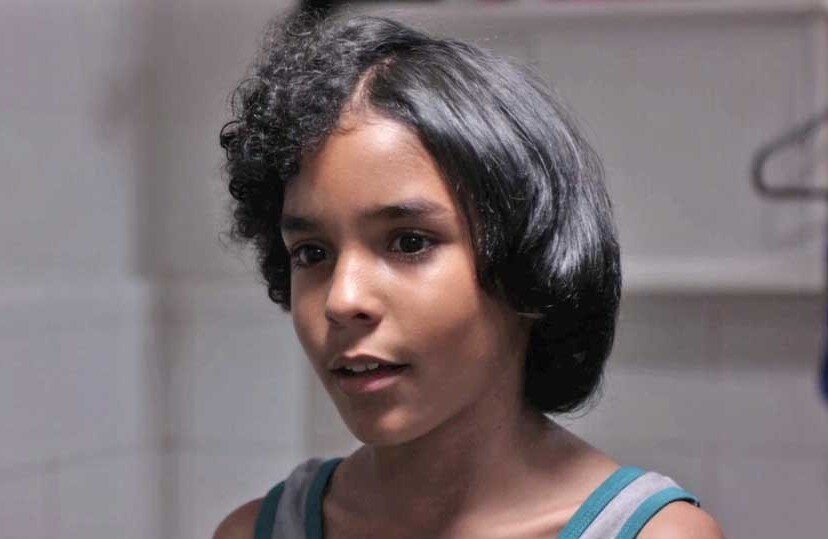‘Pelo Malo’ Is A Rare Look Into Latin American Race RelationsPosted in Articles, Audio, Book/Video Reviews, Caribbean/Latin America, Media Archive on 2014-12-13 20:57Z by Steven |
‘Pelo Malo’ Is A Rare Look Into Latin American Race Relations
Morning Edition
National Public Radio
2014-12-10
Jasmine Garsd, Reporter and Host
NPR Music’s Alt.Latino

Actor Samuel Lange Zambrano plays Junior, a boy who becomes obsessed with relaxing his hair. Courtesy of the artist
“Pelo Malo” means “bad hair” in Spanish. It’s a term that is commonly used in Latin America, and it’s also the title of a new Venezuelan film that tackles racism and homophobia.
Junior is a 9-year-old living in a poor neighborhood in Caracas. School is about to start, and he has to have his picture taken. Junior, like many Venezuelans, has European, indigenous and African ancestry, which gives him thick, tightly curled hair. He becomes obsessed with straightening it, trying everything from blow-drying to applying gobs of mayonnaise. That last attempt drives his mother, a struggling widow, insane; she threatens to “cortarle el pelo,” just cut all his hair off.
Pelo Malo is a rare look into identity politics among Latin Americans, where racism is often a taboo topic. Despite the taboo, director Mariana Rondón says, the term “pelo malo” is common currency. “The origin of the term is very offensive. It’s very racist. But it’s also true that in Venezuela, we are so mixed, that in every single family there is someone with … ‘bad hair.’ We joke that the second most profitable industry, after oil, is hair straightening. Because everyone here wants to have straight hair.”…
…The film is very Venezuelan, but many Latin Americans can relate to it. Bianca Laureano is the founder of The LatiNegr@s Project, a virtual space that aims to discuss history and current events in the Afro-Latino community. She says the battles over hair are very much present in her own life: “I have family members who I have never even met. And I meet them, and part of the conversation will be, ‘I don’t like your hair the way that it is.’ ”
Laureano says while she wishes the movie had dealt with its issues in more depth, she thinks it’s representative of a sea change in the way Latinos discuss race. “What I definitely see an increase of is people who identify as Afro-Latino. This is who I am, this is my story. We take part in this as well.”…
Read the entire article here. Listen to the story here. Download the story here.